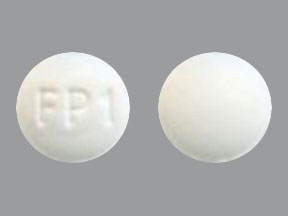
Latuda Coupons & Savings Card – Discount Prices from $8.98
Brand for: Lurasidone
My prescription
Edit
20MG, Lurasidone (30 Tablets)
Select pharmacy

CVS
$21.53
COUPON PRICE
Walmart
$8.98
COUPON PRICE
Walgreens
$14.91
COUPON PRICE
Albertsons
$19.94
COUPON PRICELatuda savings card
Show this card to your pharmacist
Walmart
$8.98
BIN
ID
PCN
GRP
019876
LH89282A32
CHIPPO
LHX
Powered by
Related atypical antipsychotics prescriptions
More prescriptions for schizophrenia
Related atypical antipsychotics prescriptions
More prescriptions for schizophrenia
Price history for Latuda (brand) & Lurasidone (generic)
30 Tablets, 20MG
Average retail price for Latuda
Average retail price for Lurasidone
Average SaveHealth price for Lurasidone
Our price history data is based on aggregated prescription data collected from participating pharmacies in America. Our prescription data updates daily to reflect the latest price changes. If you notice a missing data point, it means there wasn't sufficient data available to generate a monetary value for that date.
Over the last 12 months, the average discount price of Latuda is $19.13 using the SaveHealth savings card. That's an average savings of 98.91% on Latuda with our discount card.
*Retail prices are based on pharmacy claims data, and may not be accurate when we don't have enough claims.
Latuda (Lurasidone) dosage forms
Dosage Quantity Price from Per unit 20MG 30 Tablets $8.98 $0.30 20MG 1 Tablet $2.72 $2.72 20MG 500 Tablets $80.20 $0.16 40MG 1 Tablet $2.82 $2.82 40MG 30 Tablets $12.18 $0.41 40MG 90 Tablets $37.49 $0.42 40MG 100 Tablets $38.73 $0.39 40MG 500 Tablets $88.45 $0.18 60MG 1 Tablet $2.96 $2.96 60MG 20 Tablets $11.77 $0.59
| Dosage | Quantity | Price from | Per unit |
|---|---|---|---|
| 20MG | 30 Tablets | $8.98 | $0.30 |
| 20MG | 1 Tablet | $2.72 | $2.72 |
| 20MG | 500 Tablets | $80.20 | $0.16 |
| 40MG | 1 Tablet | $2.82 | $2.82 |
| 40MG | 30 Tablets | $12.18 | $0.41 |
| 40MG | 90 Tablets | $37.49 | $0.42 |
| 40MG | 100 Tablets | $38.73 | $0.39 |
| 40MG | 500 Tablets | $88.45 | $0.18 |
| 60MG | 1 Tablet | $2.96 | $2.96 |
| 60MG | 20 Tablets | $11.77 | $0.59 |
| 60MG | 30 Tablets | $16.41 | $0.55 |
| 60MG | 100 Tablets | $42.28 | $0.42 |
| 60MG | 500 Tablets | $106.20 | $0.21 |
| 80MG | 1 Tablet | $3.04 | $3.04 |
| 80MG | 30 Tablets | $18.64 | $0.62 |
| 80MG | 100 Tablets | $43.74 | $0.44 |
| 80MG | 500 Tablets | $113.50 | $0.23 |
| 120MG | 30 Tablets | $23.03 | $0.77 |
| 120MG | 500 Tablets | $173.40 | $0.35 |
What is Latuda most commonly used for?
Latuda is most commonly used for the treatment of schizophrenia and bipolar depression. It is an atypical antipsychotic medication that helps manage symptoms associated with these mental health conditions.
Is Latuda a mood stabilizer?
Latuda (lurasidone) is not classified as a mood stabilizer. It is an atypical antipsychotic medication primarily used to treat schizophrenia and bipolar depression. While it can help manage mood symptoms in bipolar disorder, it is not considered a traditional mood stabilizer like lithium or valproate.
How sedating is Latuda?
Latuda (lurasidone) is generally considered to have a lower risk of sedation compared to some other antipsychotic medications. However, sedation can still occur as a side effect in some individuals. The degree of sedation varies from person to person, and it is important for patients to monitor how they feel after taking the medication and discuss any concerns with their healthcare provider.
Is Latuda good for anxiety?
Latuda (lurasidone) is primarily prescribed for the treatment of schizophrenia and bipolar depression. While it is not specifically approved for treating anxiety disorders, some patients with bipolar disorder may experience a reduction in anxiety symptoms as a secondary benefit. However, it is important for individuals to consult with their healthcare provider to determine the most appropriate treatment for their specific condition.
How does Latuda make you feel?
Latuda, which is used to treat certain mental health conditions, can have varying effects on individuals. Some people may experience an improvement in mood, reduced symptoms of depression or psychosis, and an overall sense of well-being. However, it can also cause side effects such as drowsiness, nausea, restlessness, or weight gain. It's important for individuals to discuss their experiences with their healthcare provider to ensure the medication is working effectively and to manage any side effects.
